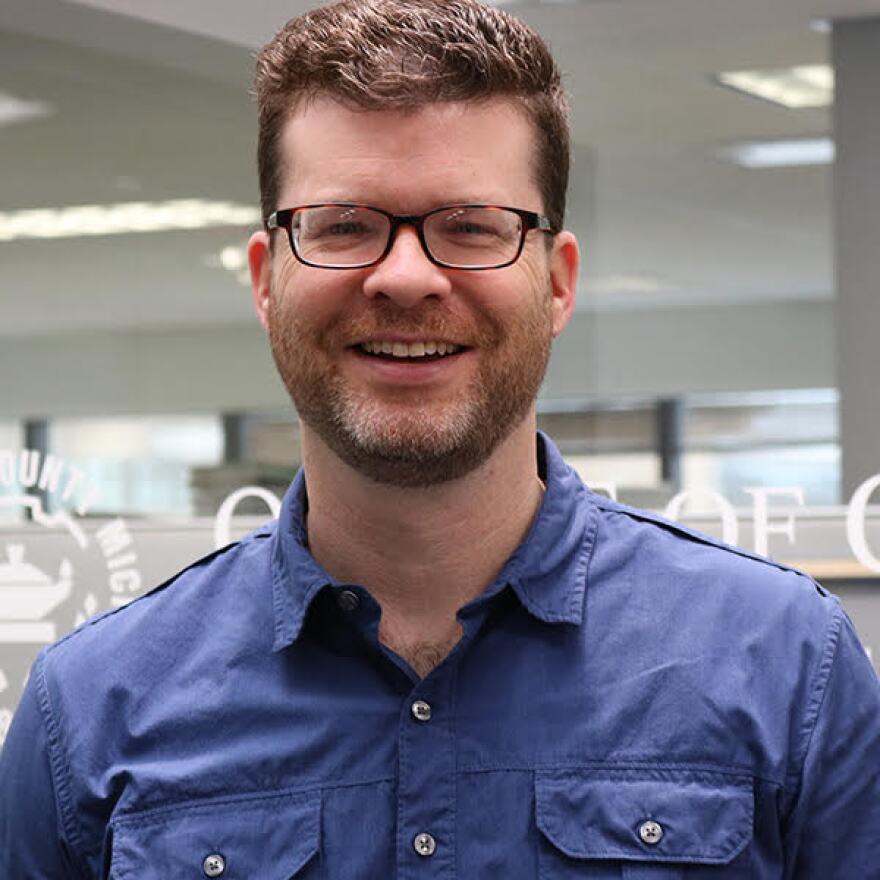Overview
- Washtenaw County’s 2023–24 Brownfield Redevelopment Authority report shows a clear countywide pivot toward environmental investigation and cleanup, directing major resources—including $1.5 million in EGLE cleanup funding and $50,000 in EPA assessment grants—toward addressing contamination before redevelopment proceeds, while seven active projects leveraged $159 million in private investment at a 13:1 private-to-public ratio.
In downtown Chelsea, the former Federal Screw Works property is undergoing one of the largest brownfield cleanups in the county: Phase 1 removed 9,000 tons of contaminated soil and replaced a failing storm drain, while Phase 2 removed approximately 31,191 tons and installed a four-foot clean-soil cap across the entire site, supported by a $1 million WCBRA environmental-response grant that makes future public park development possible.
The Dorsey Estates development in Ypsilanti illustrates how brownfield remediation is foundational to affordable housing: the site contains contaminated fill exceeding Michigan Part 201 residential cleanup criteria and requires excavation, soil removal, and engineering controls; the project received $4.3 million in WCBRA TIF support, $4.3 million in ARPA funding for affordability and buyer assistance, and a $1 million state grant specifically for removing contaminated fill and testing soil conditions, enabling 46 for-sale homes—23 permanently affordable.
At 300 N. Zeeb Road in Scio Township, a long-vacant 162,500-square-foot former industrial facility with chlorinated solvent and metal contamination is being repositioned for office, research, and development use under a $2.7 million Brownfield Plan (reduced to $1.7 million after a $1 million EGLE grant), supporting contaminated-soil removal, disposal, interior demolition, additional environmental investigation, and evaluation of vapor-mitigation needs.
In downtown Ann Arbor, the 121 Catherine Street (Dunbar Tower) project—a 100% affordable housing development—is progressing thanks in part to a $1 million allocation for environmental and infrastructure activities from the WCBRA and a $1 million EGLE brownfield grant. According to the Michigan Part 201 No Further Action report, the site contained urban fill and contaminated soils down to about 10 feet below ground surface, with PAHs and metals present at concentrations above Part 201 generic residential cleanup criteria before cleanup; the report documents extensive excavation of more than 10,000 tons of contaminated soil and debris, verification sampling for VOCs, PAHs, and metals, and engineered measures to ensure remaining soil meets residential standards so the site can be safely redeveloped for affordable housing.
- Taken together, the environmental actions in the 2023–24 period reflect a targeted shift in the WCBRA’s mission—guided operationally by Brownfield Redevelopment Coordinator Nathan Voght—from traditional redevelopment incentives toward significant cleanup-first efforts, ensuring that contaminated land across Washtenaw County is assessed, remediated, and made safe before being reused for parks, housing, and job-generating projects.
Transcription
David Fair: This is 89.1 WEMU, and today, we're going to look at the environmental and economic benefits of turning brown to green. I'm David Fair, and welcome to this week's edition of Issues of the Environment. Brownfield redevelopment is about cleaning up contaminated sites and making them safe and habitable. A Washtenaw County decision to pivot toward environmental investigation and cleanup is also paying off economically. There are seven active redevelopment projects that have leveraged $159 million in private investment. Our guest today is in the middle of all of that. Nathan Voght is Brownfield Redevelopment Coordinator for the Washtenaw County Brownfield Redevelopment Authority. And glad to have you back with us today, Nathan!
Nathan Voght: Thanks, Dave!
David Fair: First of all, the fact that we have so much need for brownfield redevelopment is that, at various times in our history, business corporations and others have polluted the properties and left it for someone else to clean up. How strong would you say are the measures in place now to potentially prevent these kinds of events from happening in the future?
Nathan Voght: I think we have much stronger regulations today for sure than we've had over the last 100 or 200 years when really it was just you did whatever you want with those chemicals or those byproducts. And of course, we're dealing with that legacy today, and that's why we have such an active program. And the state is very active because we're dealing with the lack of regulations over history.
David Fair: When there is cleanup necessary, there has to be investment to get it done, and it requires public/private partnership. Taxpayers end up footing part of the bill, but the Authority has been able to help mitigate the impact by moving the majority of the burden to the private side of these partnerships. How does that break down?
Nathan Voght: Well, the way Act 381, the Brownfield Redevelopment and Financing Act, was set up by the state in 1996 was that it uses future tax revenue from the development or the redevelopment that's being incentivized to pay for itself. So, there is tax capture that occurs, but only future increases in taxes that the developer or the development pays. And then, we turn around and can reimburse the developer for the cost of cleanup. So, we always say it's a win-win. And I think if you look around the state and look at how many active brownfield authorities there are and how many projects are using this legislation, I think people might agree that it's definitely a win-win tool.
David Fair: That is public funding in one manner or another. So, is that considered when we do the breakdown of how much private developers are paying and how much the public and taxpayers are paying? How does that work in terms of how you categorize it?
Nathan Voght: Sure. Well, our funding at the county level when we use tax increment financing, so an increase in taxes paid by the development to reimburse for the extraordinary cost of cleanup, when we look at that, we like to look at the leverage figure which you mentioned in the opening. So, for example, in our analysis for these last couple of years, every one dollar of captured tax for these TIFF projects has generates $13 of private investment. But I've done that calculation. It's been as high as $18. So, you're leveraging, again, some public input, capture of public taxes, and hopefully, you're getting a much larger catalyst and investment from the private side from these developments.
David Fair: And I want to look at how that's working in Washtenaw County. WEMU's Issues of the Environment conversation continues with Nathan Voght from the Washtenaw County Brownfield Redevelopment Authority. Let's look at some of the projects that are helping change the face of some of our communities. What went into making the Dorsey Estates in Ypsilanti possible from an environmental cleanup perspective?
Nathan Voght: Well, this site was one that the city owned and had wanting to redevelop for many years. And you've got a situation where you've got four or five acres, and, in this case, you had a lot of old urban fill over many decades that were kind of thrown on the site. And you've some of that fill had contamination. But with a project that also not only wants to clean up a site but also wants to provide affordable housing, then you've got even additional support that's needed. I mean, this is just the reality we're facing today. And so, that site, we're very proud of it. The city's very proud of it. It's 46 total condos, but 23 are affordable and will be in perpetuity between 40-80% of the area median income. And most of those affordable units have closed already. And so, we've been able to put people in those homes that have lower incomes that many of which never have had a home. But that required some ARPA funding from the county, $3.6 million, and then another $900,000 in ARPA funding from the county to assist with down payment assistance. And then, there's a brownfield TIFF set up as well for about $4 million that is paying back the developer over time, again for the extraordinary cost to clean up the site. And because the Michigan State Housing Development Authority was involved with this as well with other funding they provided, the site had to actually be virtually completely cleaned up, which is not always the case. And so, this site we're super excited about. The units are selling fast. There's 23 affordable and then 23 that are attainable, meaning they're still being sold below market. And so, our funding, the county's funding, EGLE, the Sate Office of Environment, Great Lakes and Energy, they put $1 million into it. So, this has been an all-hands-on-deck project for sure.
David Fair: And again, affordable housing is a primary issue of concern throughout the community. Over in Ann Arbor, the Dunbar Tower development is coming along and, again, in part because of environmental remediation at the site. And that's going to be 100% affordable housing. What is the cost of cleanup there?
Nathan Voght: Right. So, in this case, 100% affordable. The County Brownfield Authority has put a lot of funding over the last five to seven years into affordable housing projects. Really, this is a goal of ours--of the County Authority. In that case, we put almost $1 million--well, about $1 million--in cleanup and infrastructure. And then again, EGLE stepped in with another $1 million to assist with cleanup of this site as well. So again, when you look at affordable housing and the difficulty in building housing that's below market, it takes this sort of governmental support.
David Fair: We're talking with Washtenaw County Brownfield Redevelopment Coordinator Nathan Voght on WEMU's Issues of the Environment. Ann Arbor is also looking at a brownfield redevelopment plan for the proposed Arbor South development. Are you involved with that?
Nathan Voght: Oh, very much so!
David Fair: Tell me what it's going to take to get that property ready for habitation.
Nathan Voght: Well, this property is a little bit different use of the tool. We, as a regional authority, the individual local units of government, including the City of Ann Arbor, they sort of participate and join us. And so, we are sort of providing a service--in this case, to the City of Ann Arbor--that is considering using tax increment financing to essentially pay bonds that they would let to purchase and operate and maintain three public parking decks that would be available to the development but also to the public. So, in this case, the city's in the driver seat. We've been working with the city in a collaborative way for, gosh, a couple of years. And again, we would be providing the tax increment pass-through essentially to fund the city's debt service, but also to reimburse the developer for other certain infrastructure and site preparation costs that are eligible under the act.
David Fair: There have been other remediations and developments in Washtenaw County, including over in Scio Township and downtown Chelsea. Where else are you looking at in Washtenaw County? Perhaps the ongoing process at Ypsilanti's Water Street property?
Nathan Voght: Yes, I've been involved with Water Street for a long, long time. And we continue to work with the City of Ypsi to find resources and funding and grants to be able to continue to clean up that site and, hopefully, get it redeveloped. You mentioned the Chelsea project. I'm really proud to be supporting the Main Street Park Alliance and that city park that they're actively building out right now.
David Fair: Most everything we've talked about today is just an assessment of the last couple of years of work. What do the next couple of years look like?
Nathan Voght: I think, the next couple of years, we will continue to be more and more busy. Number one, because we have good resources to be able to continue to support good projects all around the county, but also because of, now, this affordable housing provision and option under the Act, we have a lot of developers coming. As you know, the cost of construction has gone up. It's harder and harder to build anything, including housing. We now have the opportunity to work with communities to use TIFF, tax increment financing, to support affordable and attainable housing. So, I think what you're going to see is you're going to still see the cleanup sites, the sites that have traditional contaminated soil, for example, but you're going to see also sites that are not contaminated in the traditional way but are providing affordable housing.
David Fair: Well, we have a lot to look forward to, and you and I will have a lot more to talk about in the days to come. Thank you so much for your time today, Nathan! I appreciate it!
Nathan Voght: Thank you!
David Fair: That is Nathan Voght. He is Brownfield Redevelopment Coordinator for the Washtenaw County Brownfield Redevelopment Authority. He's been our guest on this week's edition of Issues of the Environment. For more information, stop by our website at WEMU.org, and we'll get you connected everywhere you want and need to go. Issues of the Environment is brought to you every Wednesday and is produced in partnership with the office of the Washtenaw County Water Resources Commissioner. I'm David Fair, and this is your community NPR station, 89.1 WEMU-FM Ypsilanti. Celebrating 60 years of broadcasting from the campus of Eastern Michigan University!
Non-commercial, fact based reporting is made possible by your financial support. Make your donation to WEMU today to keep your community NPR station thriving.
Like 89.1 WEMU on Facebook and follow us on X (Twitter)
Contact WEMU News at 734.487.3363 or email us at studio@wemu.org







